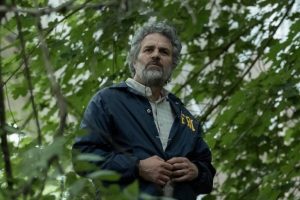 Mumford & Sons (Luna Park Records, 2011)
Mumford & Sons (Luna Park Records, 2011)
Here’s the elevator pitch on Mumford & Sons: U2 meets Old Crow Medicine Show at Bruce Springsteen’s house. They have Old Crow’s rootsy instrumentation and vintage wardrobe, and they share the Boss’ heart-on-the-sleeve sincerity and world-conquering ambition. From U2 the band takes a melodramatic sense of musical dynamics, and singer-lyricist Marcus Mumford models Bono’s strategy for rendering spiritual longing in terms that are accessible to a post-Christian world.
The Mumford blend of claw-hammering banjo, stand-up bass, thrashing acoustic guitar, and rolling piano blurs the line between the hoedown and the mosh pit. I know someone who plays fiddle in an old-time band and electric guitar in a thrash metal band; he says the only difference is the volume. In both cases, you’re playing as fast as you can for people who are wildly jumping up and down. The Mumford boys, none of whom are really kin, have grasped that fact and run with it. Even songs like “Whisper in the Dark” that start out subdued and introspective end up thrashing and screaming.
Mumford’s lyrics, meanwhile, seem to gnaw on matters romantic in terms biblical, and vice versa. Are the crumbling walls of the title track an image of a failed relationship or a literal reference to the Genesis story of human hubris? Mumford’s father is a Church of England priest who became a major player in the evangelical Vineyard Fellowship, though Mumford the younger plays coy with interviewers about whether he even considers himself Christian. Still, lines like “Lord forget all my sins” and “Jesus told me all was well” at least point the listener toward considering the gospel story as a reference point for a post-modern life.
Mumford & Sons’ music exudes a faith in faith, a belief in optimism against the odds and against the evidence, which is appealing in any time, under any label.
This article appeared on the December 2012 issue of U.S. Catholic (Vol. 77, No. 12, pages 42-43)












Add comment